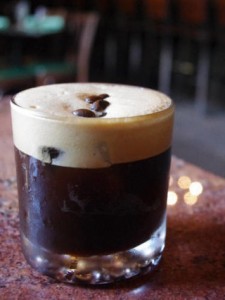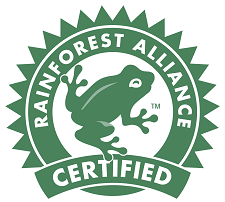Drink More Coffee
No less an authority than the Dietary Guideline Advisory Panel says that you should drink more coffee. The Washington Post reports on why Americans should drink more coffee.
Not only can people stop worrying about whether drinking coffee is bad for them, according to the panel, they might even want to consider drinking a bit more.
The panel cited minimal health risks associated with drinking between three and five cups per day. It also said that consuming as many as five cups of coffee each day (400 mg) is tied to several health benefits, including a reduced risk of cardiovascular disease and type 2 diabetes.
The recommended level is three to five cups a day but the average American coffee consumption is one cup a day. The elite dietary panel says that you should drink more coffee. We also have a couple of suggestions regarding what kind of coffee you drink.
Grind Just before Brewing
Whole bean coffee lasts longer than ground coffee. So buy roasted coffee beans and grind just enough just before brewing. Not only is flavor preserved but regular and organic coffee antioxidants, the chemicals that make coffee healthy, last longer inside a whole bean. The Post also notes that most Americans drink bad coffee, namely ground coffee that sits on the shelf forever and has lost much of its flavor and health value.
People in this country, on the whole, are actually drinking worse coffee today than they have in the past. And the reason appears to be that they value cheapness over quality – and convenience over everything. “A lot of people in America would take a sip of single origin high-end coffee and not appreciate the taste,” said Howard Telford, an industry analyst at market research firm Euromonitor.
“Price is important because if you can’t afford it, you can’t buy it, but convenience is the one thing that’s really changing trends these days.” Indeed, the bulk of this country runs not on single-drip artisanal coffee, but standard, pre-ground coffee, which, by most coffee snobs’ measures, is one of coffee’s most inferior forms.
So, skip the convenient, cheap, ground, bad coffee and grind your whole bean coffee just before brewing. And, by the way, make it organic.
Why Organic Coffee
The point of drinking healthy organic coffee is that it is good for you and good for the environment.
Healthy organic coffee has been around for a long, long time. Unfortunately in the modern era the use of pesticides and herbicides has entered the picture in growing many crops, including otherwise healthy organic coffee. Although non-organic contaminants do not necessarily reduce the beneficial health effects of a healthy cup of organic coffee the non-organic contaminants cause problems of their own.
A study by the Australian Food Standards Authority revealed that as many as 133 contaminants may be in a cup of commercially available coffee. These contaminants include metals such as aluminum and zinc, pesticide residues, ochratoxin A, acrylamide, furan, and polycyclic aromatic hydrocarbons. Some polycyclic aromatic hydrocarbons are found to cause cancer. Furans have been associated with skin disorders, liver problems, certain kinds of cancers, impairment to the reproductive, endocrine, and immune system, as well as effects on embryonic development.
So, drink more coffee and reduce your risk of Type II diabetes, various forms of cancer, multiple sclerosis, depression, Alzheimer’s disease and more. And drink healthy organic coffee and avoid the impurities too often found in regular coffee.
What Is Bird Friendly Coffee?
There are various certifications to look for when you want healthy organic coffee. We have written about USDA certification and certification by the Rainforest Alliance and UTZ. And we have written about shade grown coffee. The Smithsonian Migratory Bird Center has come out with a certification for Bird Friendly Coffee!
The Smithsonian Migratory Bird Center has developed the only 100% organic and shade-grown coffee certification available: Bird Friendly.
That’s right-no other bag guarantees that every bean is produced organically and under high-quality shade. Our seal of approval ensures tropical “agroforests” are preserved and migratory birds find a healthy haven when they travel from your backyard to those faraway farms producing the beans you so enjoy every morning.
Bird friendly coffee comes from coffee plantations with a variety of shade trees and not just a monoculture on one kind. The Smithsonian requires native trees appropriate for native birds. But, what makes bird friend coffee so great?
Shade Grown Coffee
Growing coffee in the shade is nature’s way of growing coffee.
Growing organic coffee in the shade is how growers follow the traditional means of growing coffee. Coffee is grown in the tropics and traditionally grows on the sides of hills and mountains. The time honored means of planting is to put 20 seeds in a hole of which about half survive to grow into coffee bushes. Traditional planting takes place at the start of the rainy season. It takes several years for coffee to mature and start producing coffee beans. Thus traditional growers often plant other crops amount the coffee while it is maturing. Today most growers follow the example set in Brazil of growing seedlings in a greenhouse and then planting outside when they are ready. Growing organic coffee in the shade is done by two methods. One is to partially clear forest and plant coffee. The other is to plant trees among the coffee in order to provide shade. When fruit trees are used the coffee grower enjoys two crops on the same land.
And when trees are left in place the result is bird friendly coffee. Most experts agree that shade grown coffee is better coffee, more flavorful and mild. But the best part of shade grown coffee is preservation of the environment. This method of growing coffee protects the soil, the water table and the plants. Because plants are not bunched together they are less likely to be infested by insects or plant diseases. This removes the need to use powerful insecticides and pesticides so that the end result is organic shade grown coffee. And not using insecticides and fungicides also results in healthier birds!
Which Birds Are We Talking About?
Here is a list of the birds that inhabit or migrate to tropical and semitropical coffee plantations and are primary beneficiaries of bird friendly coffee growing, courtesy of Audubon.
- Sharp-shinned Hawk
- Broad-winged Hawk
- American Kestrel
- Lesser Nighthawk
- Ruby-throated Hummingbird
- Yellow-bellied Flycatcher
- Traill’s (Willow and Alder) Flycatcher
- Least Flycatcher
- Hammond’s Flycatcher
- Brown-crested Flycatcher
- Sulphur-bellied Flycatcher
- Western Kingbird
- Yellow-throated Vireo
- Blue-headed Vireo
- Warbling Vireo
- Red-eyed Vireo
- Yellow-green Vireo
- Violet-green Swallow
- Cliff Swallow
- Barn Swallow
- Blue-gray Gnatcatcher
- Swainson’s Thrush
- Wood Thrush
- Golden-winged Warbler
- Tennessee Warbler
- Nashville Warbler
- Northern Parula
- Yellow Warbler
- Magnolia Warbler
- Golden-cheeked Warbler
- Black-throated Green Warbler
- Townsend’s Warbler
- Blackburnian Warbler
- Black-and-white Warbler
- American Redstart
- Worm-eating Warbler
- Ovenbird
- Louisiana Waterthrush
- Kentucky Warbler
- Mourning Warbler
- MacGillivray’s Warbler
- Hooded Warbler
- Wilson’s Warbler
- Canada Warbler
- Yellow-breasted Chat
- Summer Tanager
- Western Tanager
- Rose-breasted Grosbeak
- Indigo Bunting
- Painted Bunting
- Orchard Oriole
- Baltimore Oriole
What Is a Bronx Bomber?
No. We are not asking about Mickey Mantle, Roger Maris, Joe DiMaggio, Lou Gehrig or Babe Ruth. The Bronx Bomber we refer to is a coffee drink with alcohol. The Bronx Bomber is a summer drink but you will be forgiven if you make it in the depths of winter. Our preference is to make Bronx Bomber coffee with healthy organic coffee and all organic ingredients. So, what is a Bronx Bomber?
The Recipe
Fill a cocktail shaker with cracked ice.
Add 1/8 ounce of absinthe and 1 ½ ounces of gin.
Make a double shot of espresso with one of the Colombian organic coffee brands, pour over the ice and shake briefly.
Pour liquid, straining out the ice, into an eight ounce glass
Drink and repeat process as desired.
Why Organic Coffee?
You can make this drink with regular coffee but we prefer organic. Healthy organic coffee has been around for a long, long time. Unfortunately in the modern era the use of pesticides and herbicides has entered the picture in growing many crops, including otherwise healthy organic coffee. Although non-organic contaminants do not necessarily reduce the beneficial health effects of a healthy cup of organic coffee the non-organic contaminants cause problems of their own.
A study by the Australian Food Standards Authority revealed that as many as 133 contaminants may be in a cup of commercially available coffee. These contaminants include metals such as aluminum and zinc, pesticide residues, ochratoxin A, acrylamide, furan, and polycyclic aromatic hydrocarbons. Some polycyclic aromatic hydrocarbons are found to cause cancer. Furans have been associated with skin disorders, liver problems, certain kinds of cancers, impairment to the reproductive, endocrine, and immune system, as well as effects on embryonic development.
And organic coffee is good for the environment. Organic certified coffees are grown to reduce and prevent soil erosion. Growers use only natural fertilizer and avoid chemical use. They follow good farming practices including integrated pest management, avoid deforestation, and protect water sources, native and endangered species and use native fauna for shade grown coffee.
Why Would a Bronx Bomber Drink Bronx Bomber Coffee?
The last two years were not kind to the Bronx Bombers. The Yankees failed to make the playoffs for the second straight year shortstop and backbone of the team, Derek Jeter retired. This was year after star reliever Mariano Rivera hung up his glove. Bronx Bombers and Bronx Bomber fans may be forgiven for wanting to imbibe an alcoholic drink to help forget the 2015 season. However, the Bronx Bomber drink contains espresso! So, that will hopefully give the New York Yankees the wakeup that they need to get back on top. Spring training starts in February and the first game against the Phillies is March 3 in Clearwater, Florida. So, pack up your cocktail shaker, absinthe, gin and Colombian organic coffee and buy your ice in Florida just before the first game. Come cheer for the Bronx Bombers and enjoy a Bronx Bomber or two in honor of the home team!
Rain in Brazil Means Cheaper Coffee
Coffee prices fell to their lowest level in a year as drought relief comes to Brazil. The Wall Street Journal writes about expected weather and how coffee sinks to a one year low.
Coffee prices tumbled to the lowest level in nearly a year, as investors recalibrated their expectations for supplies amid signs that weather conditions in Brazil support a healthy harvest.
Arabica coffee for March delivery fell 8.20 cents, or 4.9%, to settle at $1.5940 a pound on the ICE Futures U.S. exchange. This was the lowest close since Feb. 18, 2014, and the biggest one-day percentage drop since Nov. 20.
The weather in Brazil has been better than some investors had expected. Intermittent rainfall is keeping coffee trees hydrated and on track for a healthy crop, said James Cordier, president of Liberty Trading Group in Tampa, Fla. Brazil is the source of roughly half of the world’s arabica beans, a type of coffee prized for its mild flavor.
Brazil is now “getting showers every day or every other day, which is quite normal for this time of year,” Mr. Cordier said. “The idea that the coffee crop would be weighed down by dry weather conditions is just incorrect,” he said. “The drought is far behind us, and the trees have recovered quite well.”
In short, rain Brazil means cheaper coffee. Brazil is the big dog in the coffee world and when drought damaged crops last year prices went up globally.
End of the Downturn, or Not
According a United States Department of Agriculture report global coffee production forecast for the 2014/15 growing season is that coffee production will be down 2.7 million bags compared to the previous growing season. This is because increases in production elsewhere were more than offset by a loss of 5 to 10 million bags in Brazil because of the draught. A bag of coffee weights 69 kg or 152 pounds. But, now the news from Brazil is that it is raining every day as it should during this time of the year. But according a report from Reuters it is not clear that all crops are safe or that drinking water for city residents will be plentiful with a good Brazil water supply.
Southeastern Brazil is getting some rainfall a year after a record drought started, but not enough to eliminate worries about electricity rationing, drinking-water shortages or another season of damaged export crops, meteorologists said.
Record-high temperatures and the most severe drought in at least 80 years punished southeastern Brazil last year, a region accounting for 60 percent of the country’s gross domestic product. Lingering climate challenges could threaten a tepid economic recovery.
Private weather forecaster Somar warned of irregular rainfall in the center-west soy belt as well as the southeast throughout the month as an atmospheric blockage prevents a cold front from advancing over the key producing regions in the world’s largest exporter of coffee, sugar, soy and beef.
That is especially worrisome in the southeastern state of Minas Gerais, which produces half of Brazil’s coffee. Drought there last year wiped out as much as a third of the crop in some areas, causing global Arabica prices to rise 50 percent over the year even as most other commodity markets tumbled.
As with all agricultural endeavors the farmer simply needs to plant and tend his crops and hope that the weather cooperates. While a drought means reduced production a rain in Brazil means cheaper coffee. And for us at Buy Organic Coffee that means more healthy organic coffee as well.
Add a Little More Zip to Your Chocolate Mocha Latte
Chocolate mocha latte is a popular coffee house coffee. A way to add a little more zip to your chocolate mocha latte is to add an ounce of two of Kahlua. You probably will not get the Kahlua with you mocha at the coffee house but you can make it at home. And, don’t forget to make your espresso with healthy organic coffee.
Chocolate Mocha Latte: Coffee House Version
Espresso
The basis of coffee house coffee is espresso. Espresso is very concentrated coffee that retains a lot of dissolved as well as suspended solids from the roasted coffee bean. It is made by forcing steam (boiling water) through fine ground coffee. It has a thicker feel because of the suspended solids and foam because of the pressurized steam. Espresso concentrates the flavors of coffee and is served in a small cup, usually an ounce (30 cc). A cup of espresso typically has between 40 and 75 milligrams of caffeine while a standard cup of percolated coffee contains about twice this much but in an 8 ounce cup. Thus coffee house coffee espresso is about four times more concentrated than the cup of coffee that you had a home for breakfast.
The standard variations on the coffee house coffee theme are Americano, Breve, Cappuccino, Latte and Mocha.
Latte and Breve
Both of these are made with espresso and foam. Latte is made with steamed milk and breve is made with half and half. For latte think “coffee with milk” or café au lait and for breve think “coffee with milk and cream.”
Mocha
Mocha is for coffee and chocolate lovers. It is made with espresso plus chocolate syrup plus milk. Saying chocolate mocha is redundant as mocha is made with espresso and chocolate.
How to Make a Chocolate Mocha Latte with Kahlua
The ingredient used to add a little more zip to your chocolate mocha latte is the Kahlua. But, to make this a great drink you need to get all of the steps right starting with the espresso.
You will obviously need an espresso maker and will need to learn how to make espresso. Make two ounces of express for each serving.
Ingredients include ice, 4 ounces of skim milk, three tablespoonfuls of chocolate syrup and two ounces of Kahlua. Ideally, if you are using organic coffee, you want to use organic ingredients throughout.
Add chocolate to the glass and then the espresso and then the Kahlua and then the ice. Steam the milk and layer out over the drink and serve.
Not only does Kahlua add a flavorful zip to your chocolate mocha latter but it tends to relax the drinker as well, making conversation easier and spirts rise. So be sure to have lots of coffee and other ingredients on hand because this drink may become addicting causing you to make repeated batches for your guests over an evening.
Espresso Martini
A sophisticated drink with coffee added is the espresso martini. This alcoholic coffee drink should not be confused with a traditional martini although it is served in the same kind of glass. The standard martini has been around for more than a century and was a favorite drink during Prohibition when bootleg gin was plentiful. A traditional martini, is made by pouring gin and sweet, white, vermouth, at a ratio of 1:1, into a mixing glass with ice cubes. The mix is stirred or shaken and then poured through a strainer into a chilled cocktail glass. An espresso martini however, uses Kahlua and vodka along with a shot of espresso served in the same kind of glass.
How to Make an Espresso Martini
You will need Kahlua, Absolute Vodka and any of the Colombian brands of organic coffee. A cocktail shaker is a good idea as well as a supply of cracked ice and a strainer. And do not forget martini glasses.
Grind you coffee and make espresso. You will need one ounce to make an espresso martini.
Add an ounce of espresso, an ounce of Absolute Vodka and an ounce and a half of Kahlua to your cocktail maker and add a couple of ounces of ice chips.
Shake vigorously for a minute and pour through the strainer into a martini glass. Enjoy.
The Mystique of the Martini
Although the traditional martini is still made as described there are variations. A dry martini is made with dry, white, vermouth. By the 1920’s it became common to ask for them. Over the course of the century the amount of vermouth steadily dropped. During the 1930s the ratio was 3:1 and during the 1940s the ratio was 4:1. During the latter part of the 20th century, 6:1, 8:1, 12:1, or even 50:1 or 100:1 martinis became considered the norm.
A dirty martini uses a splash of olive brine or olive juice and is typically garnished with an olive and a perfect martini uses equal amounts of sweet and dry vermouth. Some famous martini lovers had their own preferences. For example, Noel coward suggest just forgetting the vermouth or at most “waving the glass in the direction of Italy” where much vermouth is made.
How about the Espresso Martini?
It is not Prohibition and the espresso martini skips both vermouth and in favor or coffee, Kahlua and vodka. But this is the era of the coffee shop, specialty coffee and the rise of healthy organic coffee. It may well be that the espresso martini could become the sophisticated drink of this century. Try one and see how you like it!
Best Tasting Coffee
Where can you find the best tasting coffee and how can you make the best tasting coffee? The first question has to do with kinds of coffee and degree of roasting. The second has to do with proper storage, grinding coffee just before making it and your choice of brewing methods. Our preference is always one of the Colombian organic coffee brands and pouring just boiled and slightly cooled water over coffee grounds in a cloth filter. But, depending on your own preferences there is more to the story about best tasting coffee.
Strong versus Tasty
If what you want is coffee with a lot of caffeine you want robusta coffee beans.
Robusta coffee is properly named Coffea robusta, or Coffea canephora. This variety of coffee is a more hardy plant than the Arabica variety. It is less prone to infestations of insects or plant disease so it is also cheaper to grow. Originating from plants in the western and central sub-Sahara Robusta yields more coffee beans than an Arabica plant and Robusta coffee beans contain about 2.7% caffeine as opposed to 1.5% for Arabica. The Robusta plant can grow as high as thirty feet. It is the primary coffee grown across most of Africa from Ethiopia on the Indian Ocean to Liberia on the Atlantic and South to Angola. The species has also been exported to Borneo, French Polynesia, Costa Rica, Nicaragua, Jamaica and the Lesser Antilles. The most recent export of Robusta coffee beans has been to Vietnam where coffee farmers produce the second largest volume of coffee in the world after Brazil. About a third of world coffee production is Robusta coffee beans of which the largest part come from the Highlands of Vietnam.
If you are looking for better taste you want Arabica coffee beans.
People buy Arabica coffee because it tastes better and has a better aroma. Arabica is higher quality coffee than Robusta.
Storage Is Important
No matter what kind of coffee you like, the freshest coffee is the best tasting coffee.
Fresh organic coffee will stay fresher if it is stored in a cool place and if it is in an airtight container. Organic coffee antioxidants are largely responsible for coffee flavor. Heat and oxygen are their enemies. Think cool, dry, and air tight when you store coffee.
If cool is good, is cold better?
If you buy coffee that is in an air tight container you can add to its shelf life by freezing it. But, once you open the container you let air and moisture inside. If you then repeatedly freeze and thaw the coffee you will keep adding moisture and shorten the shelf life of its flavor.
Convenience can kill coffee flavor. That favorite spot on the shelf by the stove works great when you need to find the coffee in the morning. But the same warm location spells doom for fresh organic coffee. Pick a spot away from the stove or any hot air vents.
Roasted to Your Taste
The roast can make the difference between mediocre taste and the best tasting coffee. Here are the various roasts and how they affect taste.
Cinnamon Roast 195 °C (383 °F)
New England Roast 205 °C (401 °F)
American Roast 210 °C (410 °F)
City Roast 220 °C (428 °F)
Full City Roast 225 °C (437 °F)
Vienna Roast 230 °C (446 °F)
French Roast 240 °C (464 °F)
Italian Roast 245 °C (473 °F)
Spanish Roast 250 °C (482 °F)
The stronger the roast the more caramelized the flavor of the coffee. Try a full city roast and then work your way up or down the roasting list in search of the best tasting coffee.
Longer Life with Coffee
There are many known health benefits from regular and healthy organic coffee. But, do you get a longer life with coffee? That may, in fact, be the case. The Washington Post reports on a New England Journal of Medicine report noting that coffee can lengthen your life!
The headlines about coffee’s impact on your health seem to change as quickly as the time it takes to drink a cup. Should you savor every drop or try to cut down? Here’s what we know right now:
True, coffee drinkers are more likely than nondrinkers to smoke, eat red meat, skimp on exercise and have other life-shortening habits, according to a large 2012 study published in the New England Journal of Medicine.
But even after adjusting for such factors, they found that people age 50 to 71 who drank at least one cup of coffee per day had a lower risk than nondrinkers of dying from diabetes, heart disease or other health problems when followed for more than a decade. That may be due to beneficial compounds in coffee such as antioxidants – which might ward off disease – and not caffeine. Decaf drinkers had the same results.
We already knew that people who drink three cups of coffee a day or more have half the risk of developing Type II Diabetes compared to folks who do not drink coffee. Now researchers have demonstrated that the risk of dying from diabetes is also reduced in coffee drinkers.
Happiness with Coffee
Drinking coffee reduces the risk of depression.
Drinking coffee reduces the risk of depression according to recently published research. An article published in volume 171 of the Archives of Internal Medicine by a team of Harvard researchers showed a lower incidence of depression in women who reported drinking at least four cups of coffee a day as compared to women who reported drinking a cup of caffeinated coffee or less each day. The difference was a twenty percent reduction in incidence of new depression in the high end coffee drinkers. The study included 50,000 women who were free of depression at the start of the study and subjects were followed over a decade. The same researcher demonstrated years ago that male coffee drinkers (five cups a day) have a reduced risk of developing Parkinson’s Disease.
Not only do you get a longer life with coffee buy you get to be happier as well.
But Is Coffee Addicting?
Fox News asks if drinking too much coffee is addicting or harming your health.
Ever wonder what gives you that jolt moments after your first sip? It’s a surge of cortisol and adrenaline. Coffee taps your adrenals to release these stress hormones, so by drinking a cup of java (or a can of soda, as any type of caffeine does this) you are triggering the same physical response your body would have to an imminent danger.
As coffee lovers know, this rush makes you more focused and can become addictive. While consuming coffee can be great before a job interview or high-stakes presentation, daily use can put you into a chronically high-cortisol state. In fact, a study out of the University of Oklahoma revealed that drinking coffee while under even mild stress causes cortisol levels to rise higher and stay high- long past the stressful event.
The article goes on to discuss other options other than coffee. But, considering that you get a longer life with coffee and a happier one as well, what is the point! Drink coffee. Enjoy coffee. Live long and be happy!
Natural Coffee Brands
If you are interested in natural coffee brands you are looking for healthy organic coffee. In fact you really want organic shade grown coffee because under the shade of trees is how coffee grows naturally.
Shade-grown coffee comes from coffee plants grown under a tree canopy. Coffee growers plant both coffee and a variety of shade trees. This is a sustainable agricultural practice resulting in high quality organic coffee. Shade trees attract birds and are the cornerstone of a healthy habitat. Some coffee farmers plant plantain and other trees which produce fruits to harvest so they grow more than one crop on their land. There are numerous organic shade grown organic coffee brands. However, many of these types of healthy organic coffee may be hard to find. In general, when looking for organic coffee one looks for evidence of USDA certification. However, USDA certification does not guarantee that your coffee is one of the any organic shade grown coffee brands. Rather you may wish to look for UTZ certified coffee or coffee certified by the Rain Forest Alliance. Both of these organizations encourage a broader approach to growing organic coffee and commonly help promote organic shade grown coffee brands that their clients produce.
The point being that when you look for natural coffee brands look for the UTZ or Rainforest Alliance logos on the container.
UTZ Certified Organic Coffee
UTZ aims to teach good agricultural practices and environmental protection. A UTZ grower learns to do the following and then continues to do what is needed.
- Reduce and prevent soil erosion
- Keep records of fertilizer and chemical use and use these products responsibly
- Follow good farming practices including integrated pest management
- Avoid deforestation
- Protect water sources, native and endangered species
- Use native fauna for shade grown coffee
The end result of a coffee farmer following UTZ principles is that he or she retains or regrows a natural forest habitat in which natural coffee brands can be grown.
UTZ follows coffee from planting to the roaster, carries out yearly inspections and promotes the organic shade grown coffee brands of its clients. So, if natural coffee brands are your goal look for UTZ on the label.
Rain Forest Alliance
The other good choice for natural coffee brands is the Rainforest Alliance. This is a non-government entity similar to UTZ. They promote good use of the land and strict adherence to healthy means of growing coffee. Rainforest Alliance certified coffee is part of a broader sustainable agriculture program of tropical crops, including coffee, bananas, cocoa, oranges, cut flowers, ferns, and tea. Certified coffee farms meet a strict set of environmental standards that include preservation of the ecosystem and reduction in use of synthetic chemicals of all sorts. If you want natural coffee brands look for the Rainforest Alliance logo on the container.
If you would like to seek out a small grower in Latin America to obtain your coffee, especially wholesale organic coffee feel free to contact us at www.BuyOrganicCoffee.org.





